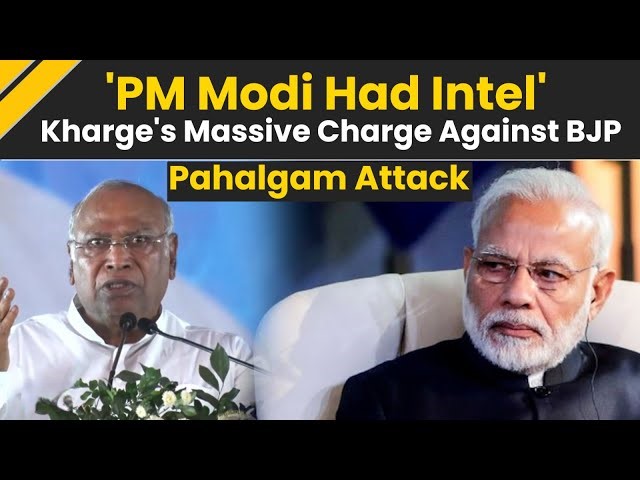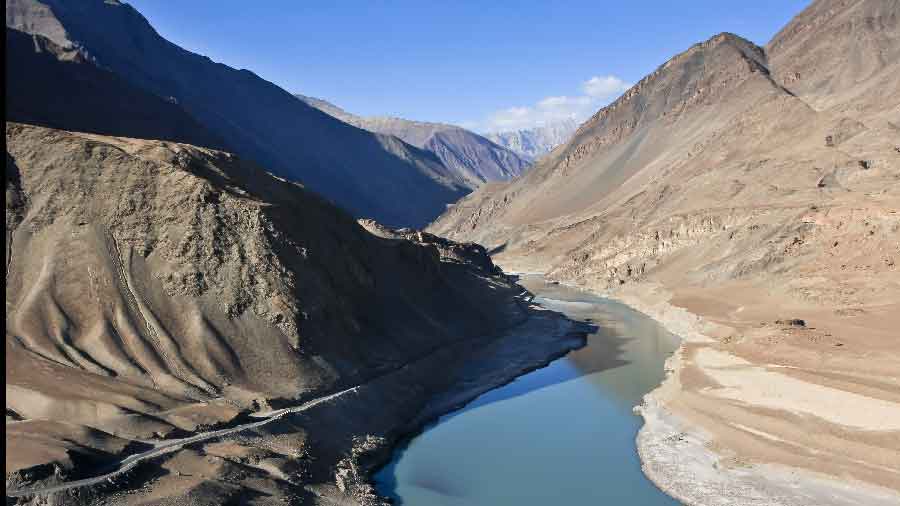Kharge’s Big Claim on Pahalgam Attack: ‘PM Got Intel, Cancelled J&K Trip’
A recent statement by Congress President Mallikarjun Kharge has sparked intense debate, as he alleges that Prime Minister Narendra Modi received intelligence reports warning of an imminent terror attack in Pahalgam—but instead of acting decisively, he canceled his planned visit to Jammu and Kashmir. The claim has deepened the ongoing discourse on national security, intelligence failures, and political transparency.
While the government refutes these allegations, calling them baseless and politically motivated, Kharge’s remarks have reignited concerns about intelligence preparedness in sensitive regions. If the claim holds, it raises pressing questions about whether authorities took adequate preventive measures—or whether political considerations took precedence over national security.
Understanding the Pahalgam Attack: What Happened?
On April 22, a group of heavily armed terrorists opened fire on civilians at Baisaran meadow near Pahalgam, a popular tourist spot in Jammu and Kashmir. The brutal attack claimed the lives of 26 people, sending shockwaves through the nation.
Eyewitnesses reported that gunmen indiscriminately fired at unarmed locals and tourists, leaving behind scenes of devastation and tragedy. Security forces responded swiftly, engaging the attackers in a gunfight. However, by the time reinforcements arrived, the assailants had managed to escape into the dense forests nearby.
The incident marks one of the deadliest terrorist attacks in Kashmir in recent years, raising concerns about rising militancy and intelligence loopholes.
Kharge’s Explosive Allegations
Speaking at the ‘Samvidhan Bachao’ rally in Ranchi, Kharge asserted that the Prime Minister had received specific intelligence alerts three days before the attack, warning about potential militant activities in the Pahalgam region. Despite this, Kharge alleged, the government did not bolster security arrangements or issue public advisories.
According to the Congress leader, instead of taking proactive security measures, the PM quietly canceled his scheduled visit to J&K. This, he claimed, was evidence that intelligence agencies had assessed the situation as highly volatile—but instead of prioritizing national security, the PM chose personal safety over leadership.
“Why wasn’t the intelligence acted upon? Why was there no heightened security in the area? The Prime Minister should answer these questions,” Kharge said during his speech. His remarks have since fueled heated political debates and media discussions.
The Government’s Response
The BJP has categorically dismissed Kharge’s claims, branding them as “politically motivated and misleading.” According to party spokespersons, the Prime Minister’s trip was canceled due to adverse weather conditions, not due to any security alerts.
Union Home Minister Amit Shah further emphasized that all intelligence warnings were appropriately processed and that security forces were actively countering threats in the region. He also stated that such claims undermine the efforts of security agencies, who work tirelessly to keep the nation safe.
Several BJP leaders have accused Congress of spreading misinformation to create unnecessary panic. “Making baseless allegations without proof is irresponsible. The Congress leadership must present concrete evidence instead of misleading the public,” said BJP National General Secretary Tarun Chugh.
Political and National Security Implications
Kharge’s remarks have added a new dimension to political debates around national security. The opposition argues that intelligence failures have been a recurring issue, pointing to previous attacks where prior warnings reportedly went unheeded. Meanwhile, ruling party leaders maintain that security forces are doing their best under challenging circumstances.
The controversy also reflects the fragile security situation in Jammu and Kashmir. With recent escalations in militant activities, experts argue that intelligence coordination needs stronger mechanisms to prevent such tragedies.
Additionally, Kharge’s allegations could have electoral consequences, influencing public perception ahead of upcoming elections. Political analysts speculate that the opposition is attempting to frame the attack within a larger narrative of security mismanagement to gain voter trust.
Bottom-Line
The Pahalgam attack has left the nation in mourning, but the political firestorm surrounding Kharge’s statement continues to unfold. While the government insists that all intelligence protocols were followed, the opposition remains steadfast in demanding answers.
As investigations proceed, one fact remains clear: ensuring better security measures and intelligence preparedness is crucial to preventing future tragedies. Whether Kharge’s claims hold ground or not, the conversation on national security and accountability will likely remain in the spotlight for days to come.



